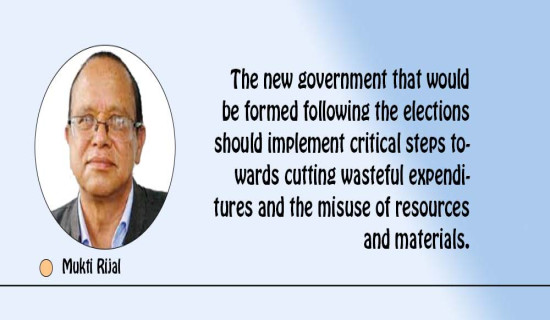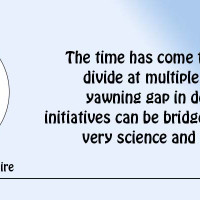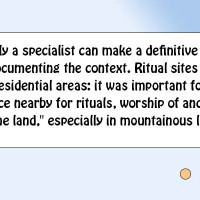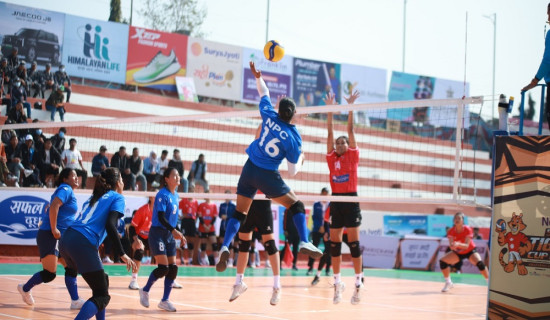- Thursday, 22 January 2026
Modi’s Russia Visit
India Shows Strategic Autonomy
The just concluded visit of Indian Prime Minister Narendra Modi to Russia has demonstrated that India has the capacity to take bold decisions to protect its core national interest and walk the slippery corridors of international diplomacy. But it is too early to assess how challenging it will be to manage a multi-aligned partnership with global powers with her own geopolitical interest at the centre.
PM Modi's two-day official visit to Russia was a long anticipated event in view of the history of close partnership between India and Russia and the need for Russia to have its reliable allies by its side in times of the present day global isolation it is in. This visit had become all the more relevant after Modi's presence in G-7 outreach meeting held in Italy and the Conference for Peace in Ukraine held in Switzerland which were dominated by anti-Russian agenda. Though India advocated negotiated settlement for Russia -Ukraine war rather than aligning with the approach of the NATO alliance countries, PM Modi thought it fitted to compensate for his presence there by paying an official visit to Moscow.
De-dollarisation strategy
Despite occasional meeting with Russian President Vladimir Putin at international forums, PM Modi had not undertaken official visit to Moscow for some years, especially after the outbreak of Russia-Ukraine War in 2022. India declined to criticise Russia when it invaded Ukraine and refused to honour sanctions against Russia. Instead she decided to purchase Russian oil and gas at a discounted price, sold it outside on higher price and stabilised her economy. Moreover, she also supported BRICS countries' de-dollarisation strategy to reduce reliance on dollars by accepting payment in each other's national currencies. This has facilitated an emergence of a multi-polar global financial order against the weaponisation of dollar by Western powers against various countries.
Indian media have projected Modi's visit as part of an annual summit meeting going on for more than two decades. But this visit carries a deeper and broader geopolitical significance. This visit has a number of bilateral significance which is being discussed by different media outlets. This visit has given a distinct message to the world that India is not in favour of the world order which western powers anticipate to emerge after they defeat Russia in its war with Ukraine.
PM Modi's visit to Russia comes amid accusations that India had helped Russia sustain its war economy with a massive purchase of Russian oil and refusing to condemn the Russian invasion on Ukraine. They are serious accusations, but Indian Foreign Minister Jayashkar aptly repudiated saying India buys some oil from Russia but only as much in a month as Europe buys in one afternoon. Despite her different perspective on Russia-Ukraine, India has, however, tried carefully to protect her broader economic engagements with the Western powers also.
If viewed in a broader international context, PM Modi's visit was, among other things, an assertive step towards diversified international partnership. This visit cannot be taken as India's knee-jerk reaction to shifting global alliances. Some western media outlets have even tried to relate PM Modi's visit to Moscow with NATO Washington Summit taking place at the same time. But the concerned Indian government officials have already clarified that it was a mere coincidence and PM Modi's visit was a scheduled programme pending for a long time.
Understandably, there are media outlets which have reacted to Modi's visit to Russia with concern and disappointment seeing it as a setback to Western policy of isolating Russia through sanctions. But a pragmatic analysis reveals the policy imperative driving Modi's visit to Russia. The first was to exercise its strategic autonomy which India is projecting as a distinct furrow in her foreign policy priorities. The second was to prevent Russia getting to close to China with whom India's relation remains tense. The third was to allay the growing perception that India was signaling a drift away from her relation with Russia by maintaining distance.
The details of the agreement reached at the summit do not appear so substantial, but it will be safe to say that this visit has paved the way for a broad spectrum of cooperation between the two Asian superpowers. During this visit, the two leaders discussed trade imbalance between the two economies and the payment difficulties existing between the two countries. According to news sources 60 per cent of India-Russia trade is settled in either Russian ruble or Indian rupees. Reeling under extensive economic sanctions, Russia is said to be facing the problem of over-accumulation of Indian rupees in its reserves.
Cooperation
Despite the meagre showing on the achievement side of the scale, India and Russia are discussing cooperation on the areas of nuclear power projects, joint production of defense equipment, space exploration and science and technology. According to Indian news channels, Russia and India are in active discussion about increased investment in the Chennai-Vladivostok Maritime Corridor which is the preferred maritime rout for both the countries because of its relative short distance and low transport cost. The maritime route has also been viewed as more effective option than International North South Transport Corridor (INSTC) which is said to be partially operational.
Despite the hugs and bonhomie between PM Modi and President Putin in Moscow, it is not a hidden fact that the relationship of India with Russia is moving along an uneasy trajectory because of Russia's closer ties with and increasing dependence on China which shares a tense relation with India. But the dynamics of international geopolitics often bring them into a triangular relation. The shift in geo-political realities appears to be compelling India and China to work through the converging point which Russia offers them. This convergence is clearly driven by external circumstances rather than natural affinity but the shifting undercurrents of the global geopolitics appear to be pushing them to a complex love triangle where there remains a possibility of balance between cooperation and competition for all the three powers.
(Dr. Bharadwaj is former ambassador and former chairperson of Gorkhapatra Corporation.) bharadwaj@gmail.com
















